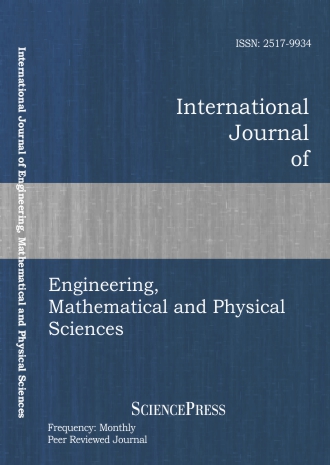
Scholarly
Volume:7, Issue: 4, 2013 Page No: 616 - 620
International Journal of Engineering, Mathematical and Physical Sciences
ISSN: 2517-9934
Orthogonal Array Application and Response Surface Method Approach for Optimal Product Values: An Application for Oil Blending Process
This paper presents a methodical approach for designing and optimizing process parameters in oil blending industries. Twenty seven replicated experiments were conducted for production of A-Z crown super oil (SAE20W/50) employing L9 orthogonal array to establish process response parameters. Power law model was fitted to experimental data and the obtained model was optimized applying the central composite design (CCD) of response surface methodology (RSM). Quadratic model was found to be significant for production of A-Z crown supper oil. The study recognized and specified four new lubricant formulations that conform to ISO oil standard in the course of analyzing the batch productions of A-Z crown supper oil as: L1: KV = 21.8293Cst, BS200 = 9430.00Litres, Ad102=11024.00Litres, PVI = 2520 Litres, L2: KV = 22.513Cst, BS200 = 12430.00 Litres, Ad102 = 11024.00 Litres, PVI = 2520 Litres, L3: KV = 22.1671Cst, BS200 = 9430.00 Litres, Ad102 = 10481.00 Litres, PVI= 2520 Litres, L4: KV = 22.8605Cst, BS200 = 12430.00 Litres, Ad102 = 10481.00 Litres, PVI = 2520 Litres. The analysis of variance showed that quadratic model is significant for kinematic viscosity production while the R-sq value statistic of 0.99936 showed that the variation of kinematic viscosity is due to its relationship with the control factors. This study therefore resulted to appropriate blending proportions of lubricants base oil and additives and recommends the optimal kinematic viscosity of A-Z crown super oil (SAE20W/50) to be 22.86Cst.